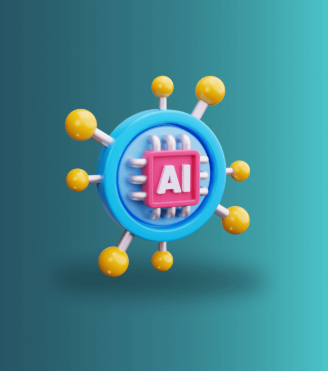The Future of B2B Marketing Teams: Embracing AI and New Roles
As the digital landscape continues to evolve, B2B marketing teams are facing an exciting shift with the growing influence of artificial intelligence (AI). AI is changing the way marketing teams operate, offering both new opportunities and challenges. The roles within marketing are being reshaped, with AI playing a central role in streamlining processes and enabling more strategic approaches. One of the key shifts is the rise of the “architect” role, which combines strategic thinking with AI-driven tools to lead marketing efforts.
AI’s Impact on B2B Marketing Teams
AI is revolutionizing B2B marketing by democratizing access to advanced tools and processes. Once seen as a competitive advantage for only the biggest players, AI is now available to businesses of all sizes, allowing them to optimize operations and make more data-driven decisions. Marketing teams are no longer solely defined by their expertise in specific channels; instead, success now depends on how well they can integrate and manage AI tools across various platforms.
Leveling the Playing Field
AI’s ability to automate and optimize labor-intensive tasks means that all companies, regardless of size, can now maintain a strong presence across various marketing channels. For example, AI can manage email campaigns at scale, ensuring that every business has access to a robust email strategy. Similarly, AI-powered tools in advertising are now capable of automating ad account management, optimizing targeting, and adjusting budgets—all once handled by specialized personnel.
This shift has dramatically reduced the need for large, specialized teams and refocused attention on those who can manage AI tools effectively to drive marketing success.
The Rise of the “Architect” Role in Marketing
With the shift from specialist operators to AI-driven processes, the role of the marketer is evolving. The new demand is for “architects”—strategic professionals who are skilled in integrating and managing AI tools across all marketing channels.
The Architect’s Role
The architect is the mastermind behind the integration of AI tools and strategies. These professionals are not bogged down by routine tasks. Instead, they are tasked with creating and overseeing the strategy that connects AI tools with broader marketing goals. Architects function like chefs in an AI-powered kitchen—directing AI to handle the mundane tasks while infusing creativity and strategic thinking into the overall marketing efforts.
Key responsibilities for architects include:
- Strategic Planning: Architects develop comprehensive marketing strategies that align AI tools with company goals across multiple channels.
- Directing AI Tools: They oversee the execution of AI-driven processes, like automating email campaigns or optimizing ad spend.
- Injecting Creativity: Architects combine AI’s efficiency with human creativity, ensuring that the marketing strategies resonate emotionally with audiences.
The role of an architect is a balance of technical skills, creative vision, and a deep understanding of how AI tools can work in harmony to achieve marketing success.
Transitioning to the Architect Role: Adapting to New Team Structures
For those already working in marketing, adapting to the role of an architect can seem like a big shift. Here’s how current marketers can prepare for this change and embrace the AI-driven landscape:
Embrace Continuous Learning
AI tools are constantly evolving, so staying up-to-date with the latest technologies is essential. Participate in courses, attend webinars, and keep an eye on industry trends to stay ahead of the curve.
Develop Technical Skills
While AI doesn’t eliminate the need for human creativity, it does require a certain level of technical understanding. Familiarize yourself with AI platforms like ChatGPT, Jasper, and Copilot, and learn how they work to ensure you can manage them effectively.
Expand Your Strategic Thinking
Shift your focus from individual channels to the bigger picture. Learn how different marketing elements—content, email, social media, and ads—work together and how AI can improve overall strategy.
Foster Creativity
While AI handles technical tasks, creativity still comes from humans. Use your creative skills to craft innovative marketing strategies that engage customers on a deeper level and stand out in a crowded marketplace.
Collaborate Across Functions
Architects must collaborate with other departments—sales, product development, and finance—to ensure that marketing efforts align with the broader business goals. Building strong relationships across teams is crucial for success in an AI-driven environment.
The Future Outlook: AI’s Role in Shaping B2B Marketing
Looking ahead, AI will continue to be a driving force in B2B marketing. The role of architects will only become more critical as companies strive to integrate new technologies and maintain a cohesive strategy. Marketing teams will increasingly rely on AI to handle routine tasks, freeing up human marketers to focus on creative and strategic initiatives. However, the key to success will be the ability to balance AI’s power with human insight and creativity.
As AI continues to evolve, the most successful marketing teams will be those that can leverage AI tools while maintaining a human touch. These teams will be adaptable, continuously learning, and working together across functions to deliver innovative and effective marketing strategies.
Recent Posts
- How AI is Revolutionizing Architectural Design: A Look at Tools, Trends, and the Future
- Streamlining Cyber Risk Assessments Through Automation
- Understanding the Difference Between Blockchain and Distributed Ledger Technology
- Is Bitcoin Mining Still a Viable Venture in 2025?
- Exploring AI: Unveiling Possibilities, Challenges, and Future Implications

